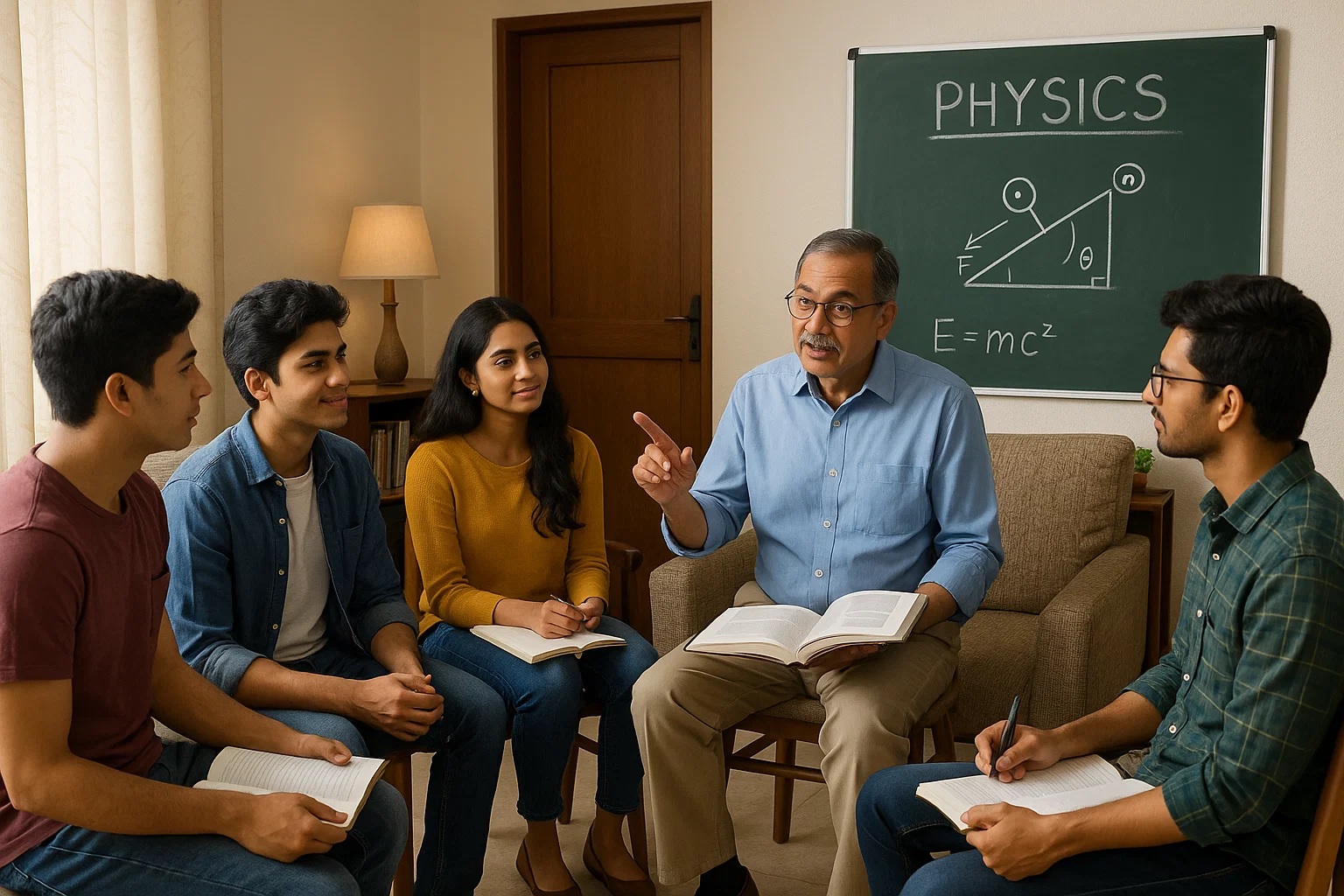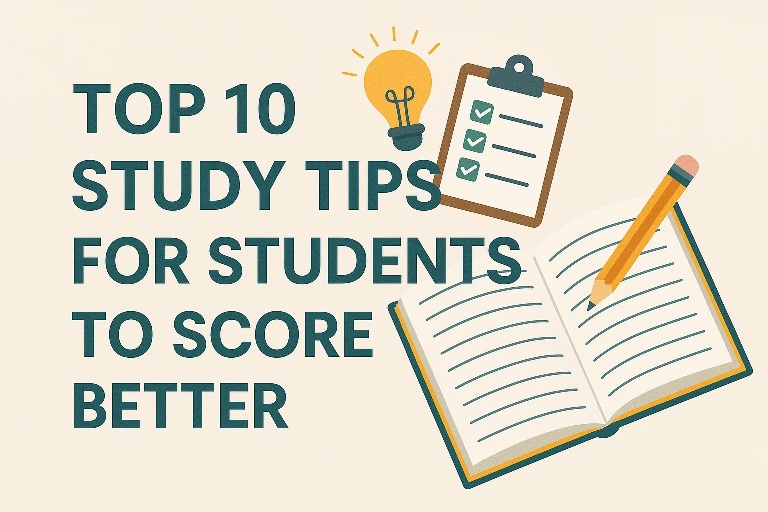Scoring better in exams is not just about studying harder—it’s about studying smarter. As someone who has worked closely with students and tutors for years, I’ve seen that success often comes down to habits, planning, and strategy rather than just long hours.
If you’re a student aiming to improve your marks or simply perform better in your next test, here are ten simple and science-backed study tips that can make a big difference.
1. Set a Study Schedule and Stick to It
Planning your study time in advance helps reduce stress and increases focus. Break your day into smaller time blocks and assign subjects to each. A study by the University of Illinois found that people are more productive when they work in focused time blocks with breaks, rather than studying continuously for hours.
Tip: Try the 50-10 method: 50 minutes of focused study followed by a 10-minute break.
2. Avoid Cramming the Night Before
Cramming might help with short-term memory, but it doesn’t lead to long-term learning. According to a research paper published by the American Psychological Association, spaced learning over several days improves retention far more than last-minute cramming.
Tip: Start preparing at least two weeks before exams and review your notes daily.
3. Use Active Recall and Practice Testing
One of the most effective study techniques is active recall. Instead of reading the same notes again and again, close your book and try to write or speak what you remember. Combine this with self-testing.
Example: After reading a chapter, write five key points from memory, then check your textbook to see what you missed.
4. Teach What You Learn
Teaching a concept to someone else forces your brain to organize and recall information better. It’s known as the Feynman Technique, named after Nobel Prize-winning physicist Richard Feynman.
Tip: Explain a concept to a friend, your tutor, or even yourself in the mirror. If you can teach it, you understand it.
5. Focus on Understanding, Not Just Memorizing
Rote learning can help with definitions, but understanding helps with problem-solving and application-based questions. The National Education Policy (NEP) 2020 in India emphasizes conceptual clarity over rote learning for this reason.
Tip: Ask yourself why, how, and what-if questions while studying a topic.
6. Eliminate Distractions While Studying
Multitasking kills productivity. A study by Stanford University showed that students who multitask retain less information and are more easily distracted.
Tip: Keep your phone on silent or in another room. Use apps like Forest or Focus Keeper to stay on track.
7. Stay Healthy: Sleep, Nutrition, and Exercise Matter
Your brain works best when your body is well-rested and nourished. Students who get at least 7 to 8 hours of sleep have shown significantly better test scores, according to research by Harvard Medical School.
Tip: Avoid all-nighters, eat a balanced diet, and take short walks to refresh your mind.
8. Create a Study-Friendly Environment
Your study space matters. A cluttered or noisy area can reduce focus. Make sure you have a clean, well-lit, and comfortable place to study.
Tip: Keep all your study materials ready before starting. This avoids the need to get up and lose focus.
9. Use Visual Tools Like Charts and Diagrams
Visual learning tools can help simplify complex information. According to a study in the Journal of Educational Psychology, students who used diagrams and flowcharts performed better in science subjects.
Tip: Create mind maps or summary charts for long chapters. Color-code your notes for better recall.
10. Review Regularly and Track Your Progress
Don’t wait until exams to revise. Regular reviews help move information from short-term to long-term memory.
Tip: Keep a study tracker and tick off topics as you master them. It keeps you motivated and organized.
My Thoughts
Every student is different, but these techniques have helped thousands of students across India improve their academic performance. If you’re struggling in a particular subject or want to build stronger study habits, consider working with a personal tutor. One-on-one guidance can help identify your weak spots and boost your confidence.
At IndiaTutor.in, we believe in supporting students not just with tutors, but with resources that make learning effective and enjoyable. Keep exploring, stay curious, and remember that consistent effort always pays off.
By Nidhi Mehta, Founder, IndiaTutor.in

